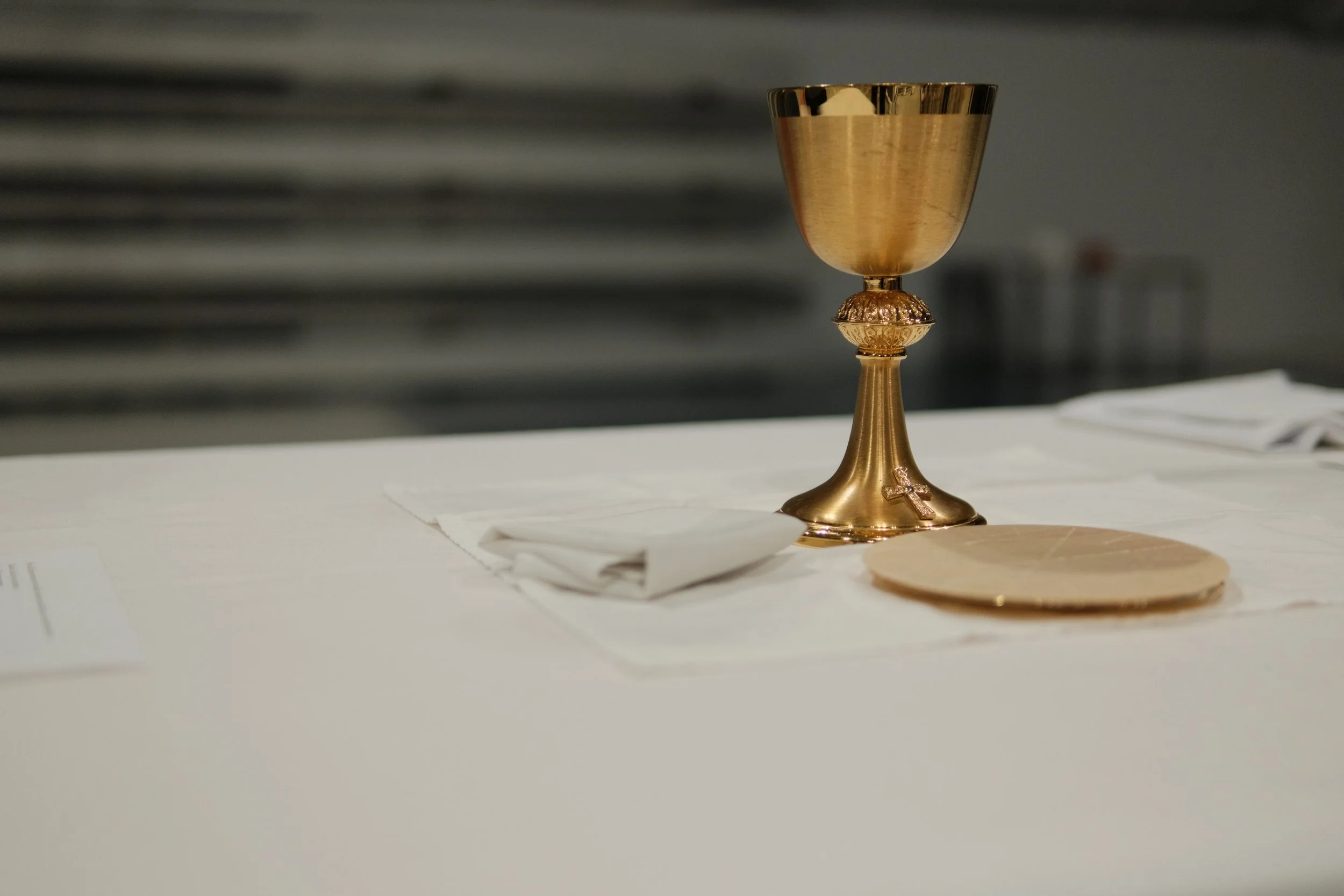Our Story
St Philip’s Anglican Church is a one year old church plant of the Anglican Diocese of the South, which is part of the Anglican Church in North America. We are located in Tuscaloosa, Alabama.
Jim Barton is leading the plant. Jim was ordained in 2020. Before moving to Tuscaloosa, he spent four years leading St John’s Anglican Church in Americus, GA. Jim is married to Kelsey, and they are the proud parents of four.
St Philip’s Anglican Church meets weekly for worship on Sunday mornings at 10am. If you’re interested in learning more about our congregation and how you can join in, please shoot an email to jim@stphilipsal.org. We’re excited to connect!
Our Mission
St Philip’s mission statement is calling many to true and lively faith in the gospel of Jesus Christ.
True and lively faith means Believing in Christ, Belonging to Christ, and Becoming like Christ. By faith, we learn to depend on Jesus and to live in the power of his Spirit. True and lively faith is more than mental assent to a set of abstract principles. It demands the involvement of our whole selves: our heads, our hearts, and our hands.
Our vision is a parish of spiritually vibrant households that carries the name of Jesus with authenticity, courage, and humility. We want to be intentional about forming the next generation to place their whole lives under Christ’s lordship. We aim to form sincere believers capable of being salt and light in a bland and dark world.
The more closely we conform to the image of Jesus Christ, the more unified we will be as a church and the more effective we will be at calling many into God’s kingdom.
What does ‘Anglican’ mean?
The Anglican Church is a Bible-believing church with ancient roots.
Our beliefs reflect the rich theological heritage of the Protestant Reformation, while our worship is both liturgical (patterned, participatory) and sacramental (we value weekly Communion).
Anglican Christians belong to God’s one, holy, catholic, and apostolic church, established by Jesus Christ. We hold much in common with other orthodox and evangelical Christian traditions and joyfully partner with others in mission and ministry. We strive to believe and practice the faith “once for all delivered to the saints” (Jude 3).
‘Anglican’ literally means “of England” and refers to our church’s historical connection with the doctrine, practices, and structures of the Church of England. As the British empire grew, Anglican churches were planted all over the world, including in colonial America. Today, the Anglican Communion includes over 85 million believers and is the third largest Christian communion in the world.
Our church plant is connected to Anglicans around the world. We are connected locally with a group of churches in a diocese, the Anglican Diocese of the South. Our diocese is connected with other dioceses in a province, the Anglican Church in North America (ACNA). Our province is connected with other provinces all over the globe through the Global South Fellowship of Anglicans (GSFA) and the Global Anglican Future Conference (GAFCON).
Why St Philip?
Why would we name a church after somebody? After all, despite whatever virtues Philip may have had, he was still a sinner saved only by grace through faith in Jesus Christ as Lord and Savior. Christians follow Jesus. Why bring others into it?
We couldn’t agree more that our faith depends on Christ alone. No one else has died for our sins, and no one else has risen from the dead and ascended to heaven to sit on the throne at the right hand of the Father.
Yet one of the interesting--and humbling!--aspects of our faith is that God chooses to use ordinary humans to spread the extraordinary good news that Jesus is Lord.
The truth is, we all learn about what it means to be a Christian from others. When word about Christ’s resurrection was first spreading, everyone heard the good news of Jesus’ victory over death from someone else, and--strikingly--no one heard it first from Jesus himself. Jesus uses others to lead people into his kingdom.
What’s more, in the New Testament, we regularly see believers exhorted to imitate apostles and elders in the faith. The language of imitation is used in around ten different places in the epistles, most frequently by Paul, but also by John, and by the author of the letter to the Hebrews as well.
So yes: St Philip, Deacon and Evangelist, was just an ordinary man. We don’t pray to him, and we certainly don’t look to him for salvation. But as we were praying about planting an Anglican Church in Tuscaloosa, we realized that Philip’s story as it is narrated in Acts paired well with the character and convictions we hope define our parish.
To name a few, Philip:
Preached the Gospel with clarity and conviction (Acts 8:5-6)
Was known to be full of the Holy Spirit (Acts 6:3; 8:29, 39)
Had a deep understanding of the Scriptures (Acts 8:30-35)
Built missional partnerships “to the ends of the earth” (Acts 8)
Offered the culture something better than the counterfeits it had become accustomed to (Acts 8:9-13)
Raised his children in the faith and fear of the Lord (Acts 21:9)
Practiced hospitality in his home (Acts 21:8)
Was persistent in works of mercy (Acts 6:1-3; Acts 8:7)
In these things, St Philip’s example is one that we will be trying, by God’s grace, to imitate. We celebrate the work God does through ordinary men and women. We hope that, like Philip, our life and witness also can glorify God’s name and extend Christ’s kingdom.


